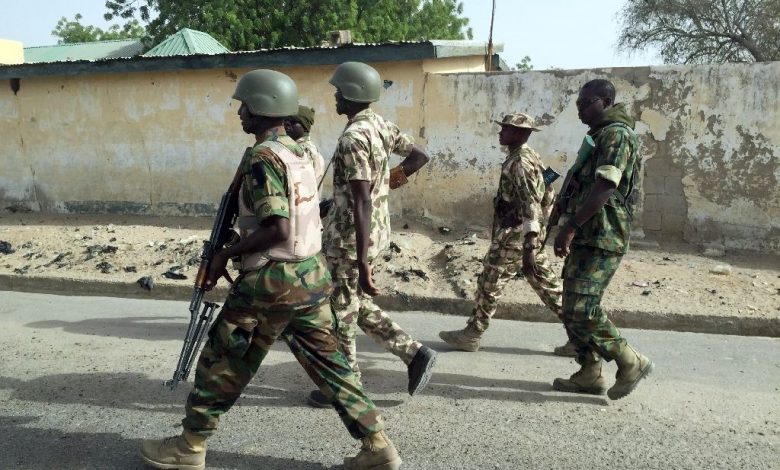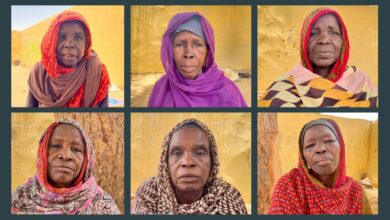Insurgency Worsened, Conflict Escalated In Northern Nigeria In 2019 ㅡ EU Reports
In a separate statement, it condemned recent killings by armed groups in the northern region and called for international humanitarian law to be respected.

The year 2019 was characterised by the deterioration of insurgency in Nigeria’s Northeast, escalation of conflict in the Northwest, and a general worsening in violent crime, the European Union (EU) stated in its latest Report on Human Rights and Democracy.
The report, issued on Monday, marks the concluding phase of implementation of the Union’s Action Plan on Human Rights and Democracy (2015-2019).
In a statement on Tuesday, the EU seized the opportunity to present an overview of the situation of human rights and democracy in the country, which it described as “highly complex”.
“Continuing issues of violence by security forces, economic and social rights, the rights of women and girls, deterioration of the humanitarian situation in Northeast remain key challenges,” it said.
“The year 2019 also saw signs of growing religious tensions between Muslims and Christians. Security forces abuses, such as beatings, arbitrary arrests, sexual violence, extortion and extrajudicial killings remain issues of concern.
“Efforts to address the problem through official investigations have shown little results,” the organisation said.
The EU also condemned violent deaths, prison congestion, and infringements on the rights of women and girls.
“Official estimates of women and girls who have experienced sexual violence is seven per cent, but numbers and reports from civil society organisations point at a substantial shadow figure,” it noted.
“Sexual and reproductive health and rights remain poor with a general low access to healthcare facilities, contraceptives and safe abortions, as well as a high prevalence of early pregnancies and child marriages. Nigeria hosts the largest number of Female Genital Mutilation (FGM) cases on the African Continent.
“Sexual harassment in institutions remains prevalent. Lastly, Nigeria has the lowest level of women represented in politics on the African continent, with only six per cent of elective positions occupied by women,” it noted.
Trafficking, sexual exploitation, and forced prostitution have also continued, the EU said, and added that for children, poor access to education and forcible recruitment by armed groups remained a problem.
On democracy, the organisation said despite improvements, the 2019 general elections “saw significant shortcomings in transparency, security and a low voter turnout with widespread violence and voter suppression witnessed in the states of Kogi and Bayelsa”.
“Nigeria’s civic space is reportedly shrinking due to increased arrests of journalists and attacks on media houses. Particular worries have been expressed about an apparent tendency by the government to allow arrests without trial and ignore court orders,” it added.
‘Latest acts of terrorism are intolerable’
In a different statement, jointly released by the EU High Representative, Josep Borrell, and Commissioner for Crisis Management, Janez Lenarčič, the organisation condemned recent attacks and killings by armed groups in Northern Nigeria.
It noted that over 160 people, including 130 civilians, had been killed since May 28, 2020.
“Such heinous acts of terrorism and violence are intolerable. These attacks pose a serious threat to Nigeria’s security and to that of the wider region, including in the increasingly restive Northwest of the country,” the EU said.
“The ongoing conflict, growing food insecurity and COVID-19 pandemic significantly increase humanitarian needs in Northeast Nigeria. International humanitarian law must be safeguarded and respected by all parties to the conflict, in Nigeria and elsewhere.
“Civilian and humanitarian personnel should not be targeted, and all parties should facilitate unimpeded passage of humanitarian relief for civilians in need. The EU stands by Nigeria and its people in this period of increased violence and instability,” it concluded.
Support Our Journalism
There are millions of ordinary people affected by conflict in Africa whose stories are missing in the mainstream media. HumAngle is determined to tell those challenging and under-reported stories, hoping that the people impacted by these conflicts will find the safety and security they deserve.
To ensure that we continue to provide public service coverage, we have a small favour to ask you. We want you to be part of our journalistic endeavour by contributing a token to us.
Your donation will further promote a robust, free, and independent media.
Donate Here




